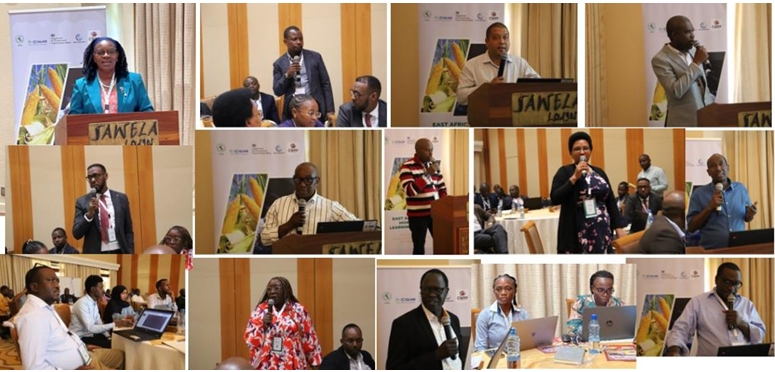Seeding Progress: Reflections from the GEOGLAM Crop Monitor Learning Exchange in East Africa.

18-22 March 2024, Naivasha, Kenya.
The GEOGLAM community organized the East Africa Learning Exchange on Earth observation (EO) based-agriculture monitoring systems and approaches.
Gathering national, regional and international experts, the exchange provided a platform to reflect on the success and challenges of EO-based agriculture and food security monitoring, exchange ideas and learn from each other’s experiences.
The intensely packed agenda covered:
-
- Crop Monitoring overview and fundamentals;
- EO-based Agriculture Data Applications and Platforms;
- Approaches to In-situ data collection and crop type mapping;
- Institutional and Technical frameworks for agriculture monitoring
- Aligning agriculture monitoring with other national programs; and
- Gap analysis and concept note development.
During the exchange, country teams comprising the Ministries of Agriculture and supported by the National Meteorological and Hydrological Services, National Bureaus of Statistics among other key agencies/departments, worked together, diligently scrutinizing the current landscape of agriculture and food security monitoring within their respective nations.
Identifying pressing needs and critical gaps, these teams meticulously crafted concept notes outlining strategies to address the identified challenges, leveraging the technical expertise of the GEOGLAM community.
The need for a robust national coordination mechanism among the various state and non state actors actively involved in agriculture and food security was resoundingly clear right from the beginning of the learning exchange. While achieving this coordination is a task easier said than done, especially where disparate government agencies and departments are often charged with a different portion of agriculture/food security landscape, the collaborative efforts witnessed during group exercises underscored the potential for progress and innovation in this area. Furthermore, having a lead organization/institution to champion and facilitate this coordination goes a long way in ensuring significant sustainable progress.

As we reel back and reflect on the success of the learning exchange, the journey ahead beckons with the tremendous task of translating the meticulously crafted concept notes into fully implementable projects and programs that build and reinforce food security at scale. The GEOGLAM community will continue working with the countries, providing them with strong technical backing to realize their set objectives and goals.
On the same note, we would like to invite the agricultural and food security community and donors to join us in this pursuit and support the development of sustainable operational agricultural monitoring services at national level.
We extend our heartfelt gratitude to our regional partners at the IGAD Climate Prediction and Applications Centre (ICPAC) for their invaluable collaboration in co-organizing this event. Additionally, we express sincere appreciation to the United Kingdom Department for Environment, Food and Rural Affairs (DEFRA) and the China – World Bank Group Partnership Facility (CWPF) for their generous financial support, which made this learning exchange possible.
With representation from Kenya, Uganda, Tanzania, Djibouti, South Sudan, Somalia, Ethiopia, Rwanda, Burundi, Malawi, Lesotho, Mozambique, Zambia and Senegal, alongside our esteemed GEOGLAM partners including (but not limited to) ICPAC, the Joint Research Centre (JRC), the Food and Agriculture Organization of the United Nations (FAO), NASA Harvest/University of Maryland (UMD), the World Meteorological Organization (WMO), Famine Early Warning Systems Network (FEWSNET), the United Nations Framework Convention on Climate Change – Least Developed Countries Expert Group (UNFCCC-LEG), SERVIR, the International Center for Tropical Agriculture (CIAT), AfriGEO, the European Space Agency (ESA), the Kenya Space Agency (KSA), the Directorate of Resource Surveys and Remote Sensing (DRSRS), the Flemish Institute for Technological Research (VITO) and the World Bank, we stand poised to forge ahead in our collective mission to enhance global food security through the power of collaboration and innovation.